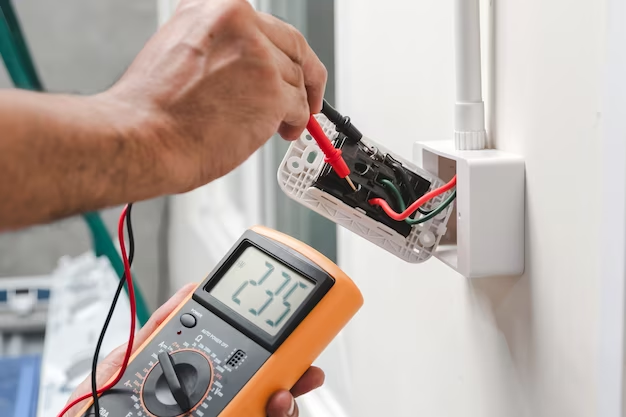The average person spends about 90% of their time at home, so it's important to ensure that your home is set up for maximum comfort and convenience. If you're considering renovating or adding to your home, it's a good idea to pre-wire the space before construction begins.
This will allow you to choose from various lighting options and wiring configurations without having to worry about the challenge of working around existing structures.
Pre-wiring your home is a big job, but it's well worth the effort in the end. But there are a few things you'll need to keep in mind before starting the process. Here are seven things that you might want to consider when pre-wiring your house:
1. Plan Ahead
Choosing the right wiring configuration can be challenging if you don't have a plan. It would be best to consider where all of your electrical outlets will go. Moreover, what types of lighting will work best for each room in your house?
It's a good idea to map out your wiring plan before you start construction to ensure everything is installed correctly. This will also help avoid any costly changes down the road.
2. Check the Pre-Wiring Services of a Local Company
The first thing to consider is whether or not you want to hire a professional to pre-wire your home for you. Many electrical companies offer this service, and it can be well worth the investment. They will help you choose the right wiring options for your needs and ensure that everything is installed correctly.
You may also check if that company offers emergency electrician services so you can get help if something goes wrong. Hiring a professional will help ensure that your home is well-prepared for the future, regardless of whether you plan to renovate.
3. What Kind of Wiring Do You Need for Your Home?
You will need to decide how much work you want to be done because it could affect the type of wiring you choose. Some people prefer to have everything pre-wired if they ever want to make major renovations down the road. Other people only wire certain parts of their homes for emergency purposes (such as adding more electrical sockets in an emergency room).
If you have a lot of appliances or electronics, you'll need more outlets and higher amperage wiring. In addition to standard electrical outlets, you may also want to consider installing outlets that are specifically designed for technology devices like laptops and cell phones. These can be helpful when you have a lot of gadgets that need to be charged regularly.
Regardless of your situation, it's important to talk with a professional about your specific needs so they can recommend what kind of wires you should have installed throughout the house. Be sure to consider all of your needs when pre-wiring your home, or you may run into problems in the future.
4. How Much Will It Cost to Pre-Wire Your Home?
Pre-wiring your home can be costly, but it will pay off in the long run. The cost of labor and supplies may vary depending on the size of your house and the work required. Getting an accurate estimate before you begin any construction is important so you know what to expect.
Consider many things when pre-wiring your home - from wiring options to installation costs. By planning, you can ensure that your home is set up for maximum comfort and convenience. Talk with a professional about your specific needs, and make sure to budget for this important renovation project.
5. Will the Wiring Be Hidden or Visible in the Walls and Ceilings?
This is another important consideration, as it will affect the overall appearance of your home. If you want the wiring to be hidden from view, you will need to have special walls and ceilings installed to accommodate this type of work. This option can be more costly, but it's worth considering if you want a sleek and polished look for your home.
If you don't mind having wires visible in your walls and ceilings, then there are many less expensive options available that will still get the job done. Talk with a professional about what kind of wiring is best for your needs and budget.
6. How to Prepare Your Home for Pre-Wiring
Another thing to consider when pre-wiring your home is how to prepare your home for installation. There are a few things you can do to make the process go smoother:
- Remove any furniture or other obstacles from the room where work will be done.
- Label all cables ahead of time so the contractor knows what goes where.
- Ensure all your electrical outlets and switches are in working order before construction begins.
By following these tips, you can help ensure that the pre-wiring process goes as smoothly as possible.
7. Understanding How Wiring Works in Your Home
Last but not least, you should also take the time to learn more about how wiring works in your home. This will help you make informed decisions throughout the pre-wiring process, and it can be especially helpful during renovations or emergencies where power needs to be restored quickly.
If any part of this process sounds confusing, talk with a professional specializing in electrical work for advice on the best options for your situation. The sooner you prepare ahead of time, the less stressful future repairs or renovations will be!
Conclusions
These are some of the things you need to consider when pre-wiring your home. By planning ahead, you can ensure that your wiring is done correctly and that all of your needs are met.
If you have any questions, a professional specializing in electrical work will gladly answer them. They will not only guide you through the process, but they will also get the job done!







